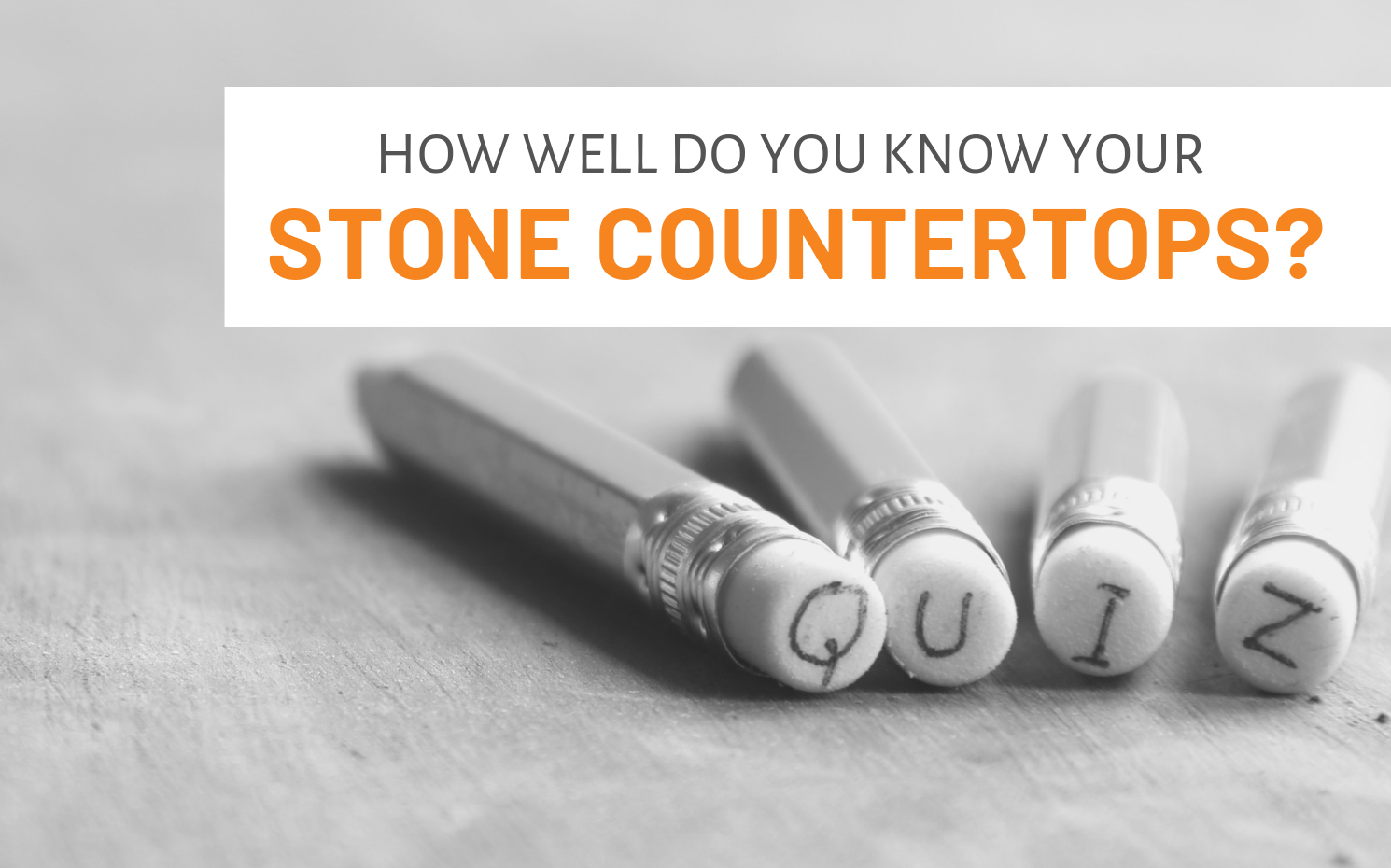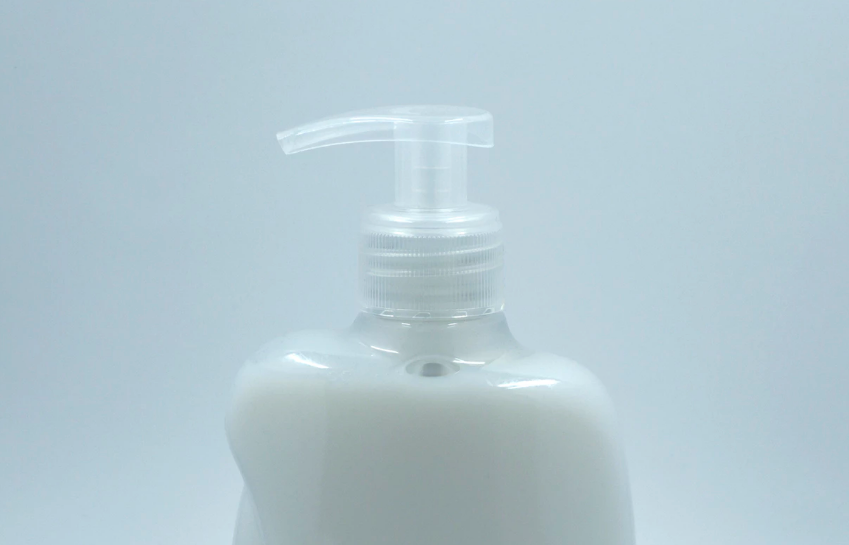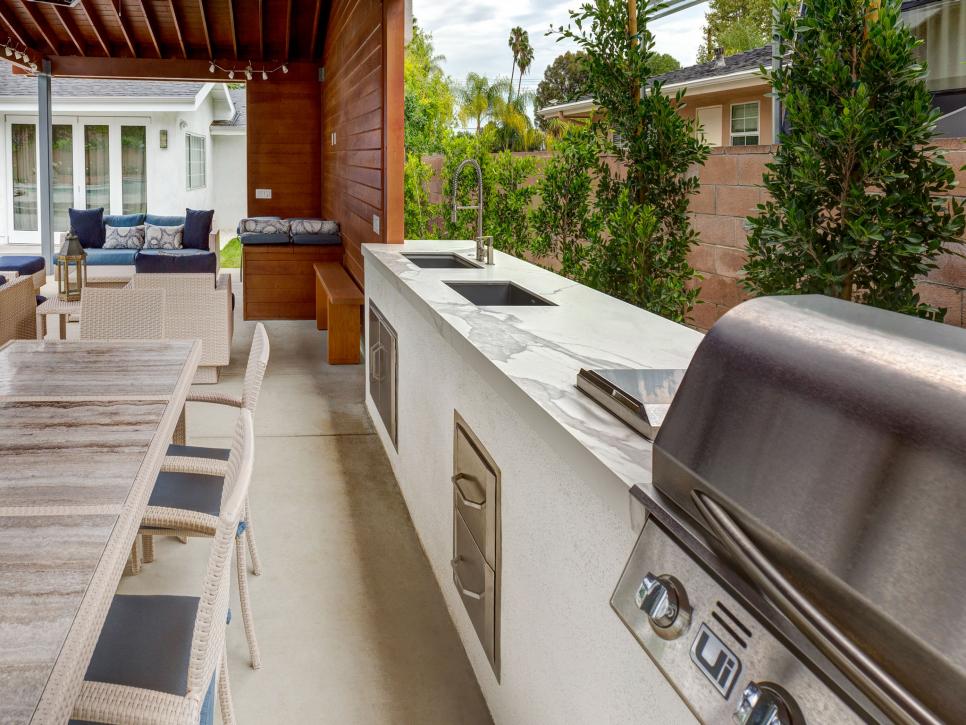How well do you remember the pros, cons, ins, and outs of your stone countertops? Does quartz need to be sealed? Is stone actually cold? Let’s find out how much you know!

True or false: It’s okay to use knives on stone countertops.
False! Although technically hard stone like granite and quartz can handle knives, your knives can’t handle stone. They’ll dull quickly because the stone is harder than the knife. Plus, who wants to risk scratching or staining a beautiful slab countertop? Acidic fruits like lemons or tomatoes can seep into the fine grain of granite and stain it. Cutting acidic foods on a countertop isn’t the best choice. And even if the acid doesn’t stain the countertop, it may dull the surface shine.
On a softer stone like marble, which is far more susceptible to scratches, chips, and stains, using a knife directly on the surface is out of the question. So get yourself a cutting board and save your knives and your counters!
True or false: Quartz needs to be sealed.
False. Quartz is an engineered stone and never needs sealing. Engineering is a process that includes mixing ground quartz and polymer resins. The mixture is then shaped into slabs. As a result, quartz countertops are less porous than marble and granite. The process essentially creates its own seal.
This also means that quartz counters are quite sanitary compared to marble and granite, which is a huge plus in the kitchen.
True or false: Clean marble with warm, soapy water only.
True. Like we mentioned above, acids can dull a marble countertop. These dull spots are called etches. A cleaner than contains vinegar, lemon juice, or bleach may damage the surface. There are safe marble cleaners out there, but make sure you read the labels carefully to avoid abrasive cleaners that will damage your counters. Essential oils are also a natural, homemade option.

As a general rule, just use gentle, non-abrasive dish soap, like castile. Don’t leave any soap residue sitting on the counter. Many experts recommend cleaning your marble regularly just using warm, soapy water and a microfiber cloth! How easy is that?
True or false: Quartz is heatproof.
False! Because quartz is made with resin, it is not heat proof, although it is heat-resistant to a point. Heat resistance varies by manufacturer, but usually anything hotter than 150 degrees will melt the resins, leaving a white spot on your countertop. Such spots are difficult, if not impossible, to repair. Use a silicone mat or a potholder, and avoid putting pots and pans directly onto the counter.
True or false: Stone countertops are cold to the touch.
True. Or so it seems. Actually, a stone countertop stays at the same temperature as the room it is in. But heat passes through stone quickly. Your body, of course, is warmer than the average room, at around 98.6 degrees. Stone pulls your body temperature into itself, making it seem as though the stone is cold. In reality, it’s simply sucking up your body temperature. Neat, huh?
For those of us who don’t appreciate coming out to the kitchen on a chilly morning and getting frostbite from touching the counter, companies like Feels Warm have created a solution: heating pads! A countertop heating pad is a nearly invisible stick-on mat that is installed under the counter. It’s a wonderful upgrade to invest in if you want a toasty warm counter to lean on.
True or false: Quartz can be used outdoors.
Well, true and false. Quartz is UV resistant to a certain point. Exposure to direct sunlight for more than a few hours each day will eventually damage it. Discoloration may occur, especially if the countertop is dark in color. Like putting a hot pan on a quartz counter, UV rays can mess with the resins. Cracks are also a danger.
If you have an outdoor kitchen and are considering quartz, make sure your countertops are not exposed to the sun. Otherwise, quartz counters can be a wonderful choice for outside, since they’re extremely sanitary.

Marbled effect outdoor kitchen by Gardener’s Supply Co. via HGTV
Or to be completely safe, go with granite or marble. Granite is arguably the best choice for outdoors. It’s tough, durable, and won’t etch. Marble will age quickly outside unless you seal it regularly, but it’s still a great choice!
Great job – you made it!
How many did you answer correctly? All of them? Congratulations, you’re probably an expert! Only a few? Well, good for you! Now you have some new snippets of knowledge to help you maintain your existing stone countertop, or aid you in purchasing a new one.

Recent Comments